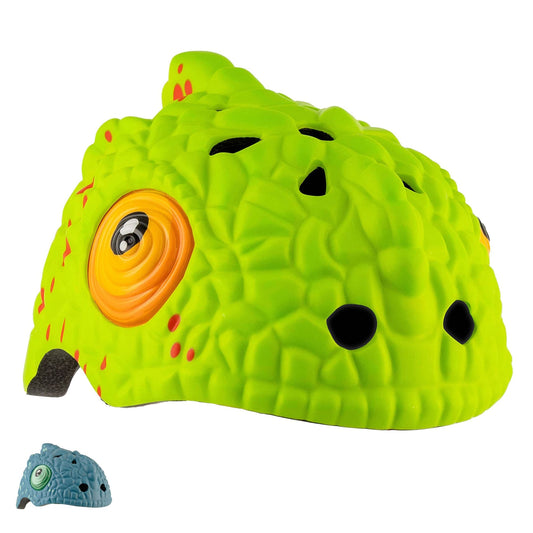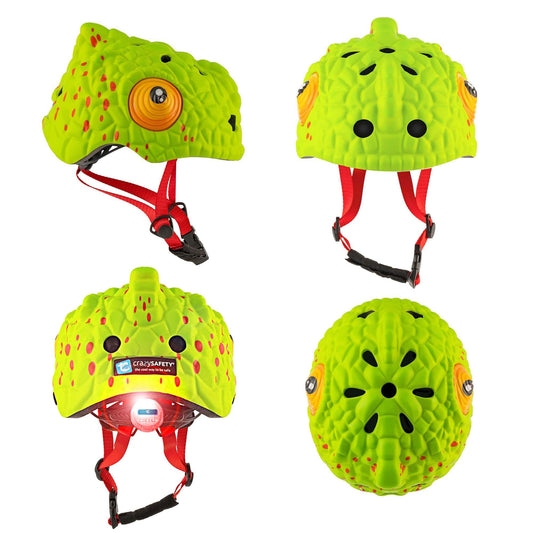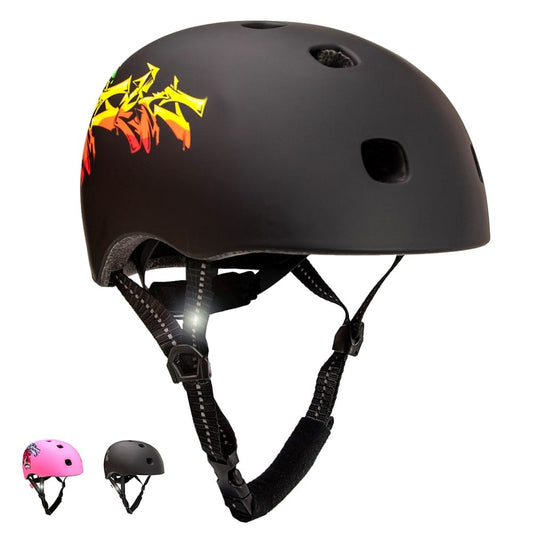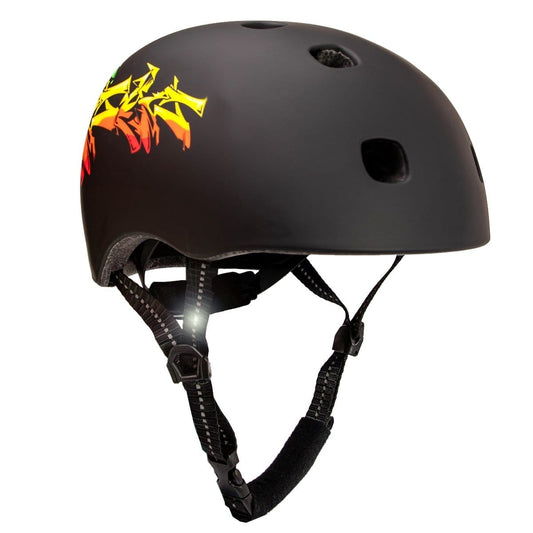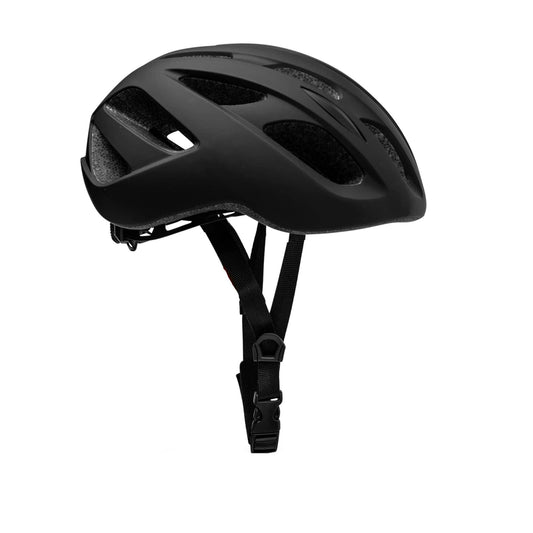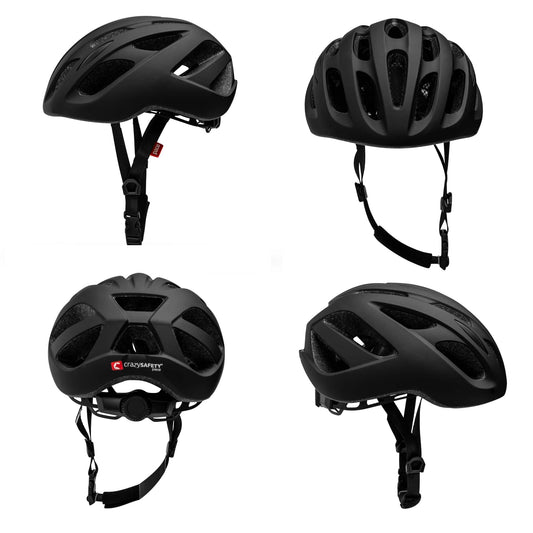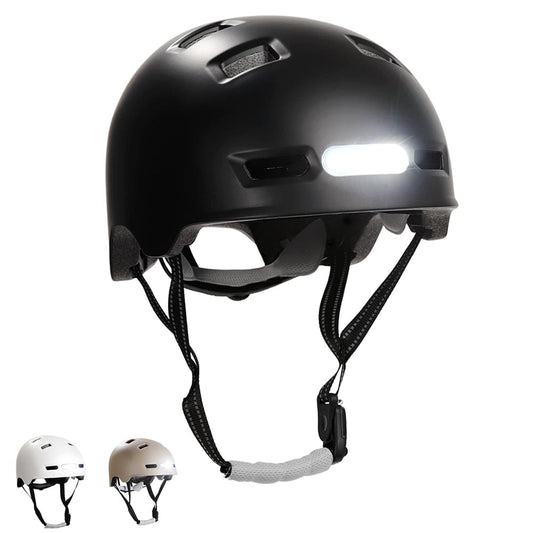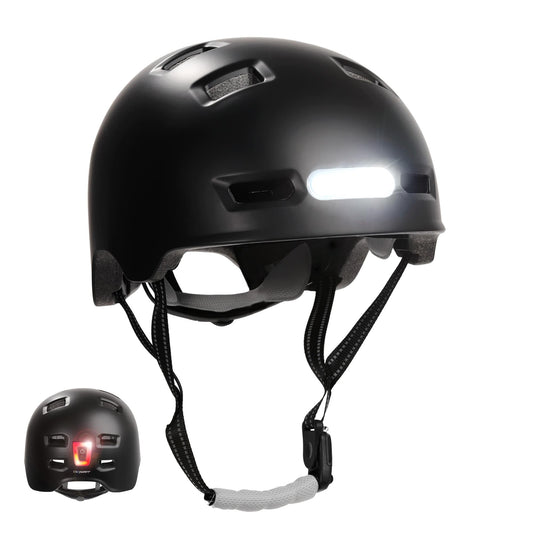Are you the parent of a teenager or child who loves to skateboard or rollerblade? Are you concerned about their safety while they're out there having fun? Fear not, because in this blog post, we've got you covered! We will explore helmet safety across various types of sports and provide helpful tips and guidelines for you to ensure your child is as safe as possible. So sit tight, and let's dive in!
Why Helmets are Crucial?
Helmet safety is important across all sports, but particularly in activities such as skateboarding and rollerblading where falls and collisions are commonplace.
Skating is undoubtedly fun, but let's not forget the safety aspect. Surprisingly, only around 5% of skateboarders actually wear helmets. This is a bit concerning, especially when you consider that head injuries account for a significant portion of skateboarding-related ER visits. In fact, over 245,000 people found themselves in the emergency room due to skateboarding falls just last year. So, whether you're just starting out or you've been skating for years, wearing a helmet should be a top priority.
Rollerblading, too, comes with its share of risks. But you can significantly reduce the risk of serious head injuries with a well-fitted helmet. So, regardless of your sport of choice, never underestimate the importance of a helmet. It could make all the difference when you're out there, enjoying the thrill of the ride.
Differences Between Bike Helmets, Skateboarding Helmets and Rollerblading Helmets
Each sport carries its own specific risks and challenges, and the design of safety helmets reflects this.
Let's start with the skateboarding helmets. Skater helmets, unlike bike helmets, are typically rounded with a less streamlined design. They're made to withstand multiple low-force impacts typical of skateboarding tumbles. Besides, they usually have a hard shell and minimal vents, providing more coverage to the back of the head.
Now, onto rollerblading helmets. These are quite similar to skateboarding helmets in design. They also prioritize coverage and multiple impact protection over aerodynamics. However, there might be slightly more ventilation in rollerblading helmets, given the fast nature of the sport that can generate quite a sweat!
Last but no less important, bike helmet. These are usually lightweight, aerodynamic and have plenty of ventilation to keep your head cool during those long rides. They're designed to protect against a single high-impact fall, like you might experience if you fly over your handlebars.
So when choosing a helmet, remember that it is about picking the right helmet for your sport, to give you the best protection possible. After all, safety never goes out of style!
Also don't forget that helmets aren't a replacement for other safety measures. Wrist guards, elbow pads, and knee pads should also be worn for certain sports like skateboarding and rollerblading. It's important to do everything possible to protect your child and ensure their safety while they're having fun.
Factors to consider when choosing a helmet
Choosing the right helmet isn't just about finding one that fits your sport, but also one that fits your head perfectly. A helmet that's too tight can be uncomfortable, while one that's too loose might not provide the protection you need. Crazy Safety helmets come in various sizes, and have adjustable size system and straps to help you secure the perfect fit.
Ventilation is another aspect to take into account. Essentially, the more vents a helmet has, the cooler it will keep your head. A helmet for biking may have more vents for coolness during long rides, whereas a skater helmet is designed with fewer vents for maximum protection.
The weight of a helmet can also impact comfort, particularly for longer sessions. Lightweight helmets can be more comfortable and less likely to cause neck strain. At Crazy Safety we don't compromise safety by ensuring all our helmets are lightweight but still sturdy and robust enough to protect your head.
Lastly, but perhaps most crucially, look for helmets that are certified for use in your specific sport. Certifications are awarded by independent bodies who rigorously test helmets for safety. For instance, in the European union, look for the EN1078 label which certifies the helmet is fit for cyclists, skateboarders, and rollerbladers. And in US look for CPSC certification. You can learn more about certifications in our blog "Understanding Bike Helmet Certifications"
Remember, a helmet is an investment in safety, so take the time to find one that is comfortable, well-ventilated, lightweight, and certified for your sport - it might just save your life!
Our best Crazy Safety advise!
In conclusion, it's crucial to remember that every sport carries its own specific risks and challenges, and the type of helmet you wear should reflect this.
But choosing the right helmet is not just about the sport – it needs to be the perfect fit for your head, provide adequate ventilation, be lightweight for comfort, and most importantly, be certified for your specific sport. Always remember, safety never goes out of style!
So as you're getting ready to embrace the thrills of your favourite sport, check out our extensive range of Crazy Safety helmets, designed to keep you safe while you're out there having fun. You'll find the perfect balance between style, comfort, and top-notch safety. Check them out today and make the most of your sporting adventures, safely and stylishly.


